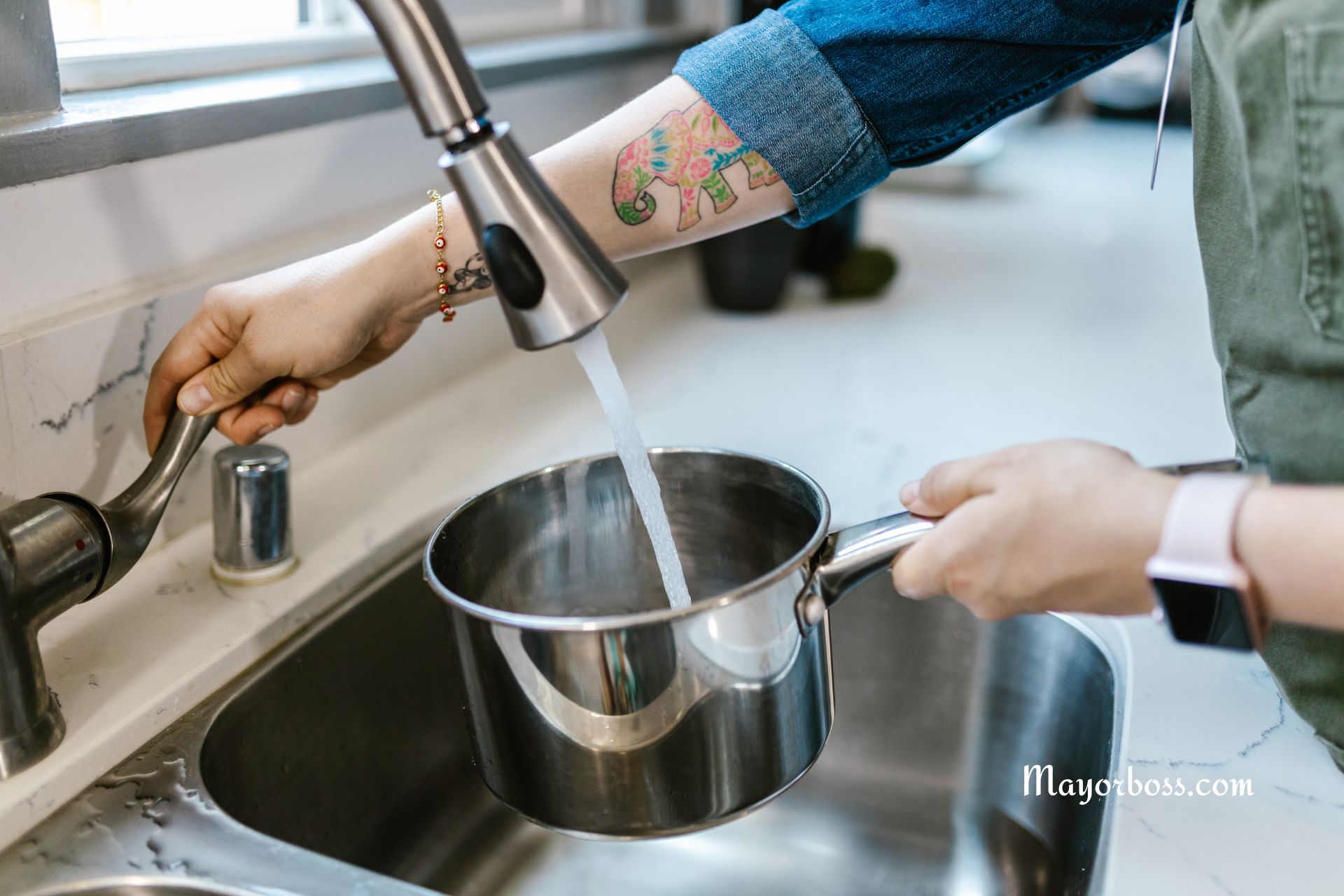Why You Should Avoid Using Warm Tap Water for Cooking or Drinking
Using warm tap water for cooking or drinking might seem like a convenient shortcut, but it’s not the best practice for your health. This practice can expose you to potential contaminants that could be harmful to your health. Let’s explore why cold tap water is a safer choice and what risks are associated with using hot tap water.

The Risks of Using Warm Tap Water
Lead Exposure
One of the main concerns with using warm tap water is the potential for lead contamination. In many older homes, plumbing systems may include lead pipes or fixtures. When warm water passes through these materials, it can leach more lead than cold water due to its ability to dissolve and carry the metal more effectively. Consuming lead is dangerous as it can lead to serious health issues, especially in young children and pregnant women, affecting brain development and causing other severe health problems.
Buildup of Bacteria
Warm water can also foster the growth of bacteria. Water heaters typically set temperatures at around 120-140 degrees Fahrenheit to prevent bacterial growth; however, some bacteria, like Legionella, which causes Legionnaires’ disease, can still thrive within this range if not properly maintained. Therefore, using cold water, which is less likely to have bacterial growth, and then heating it as needed is safer.
Increased Mineral Dissolution
Warm tap water may dissolve more minerals and contaminants from your home’s plumbing. While some minerals are not harmful, increased levels can affect the water’s taste and safety. For example, higher concentrations of copper and zinc can occur, which, while essential in small amounts, can be toxic in higher doses.
Better Alternatives
To ensure your water is safe for drinking and cooking:
- Always start with cold water. Use cold tap water for drinking and cooking purposes. It’s generally drawn directly from the main water supply and is less likely to have been sitting in your home’s plumbing system.
- Heat as needed. If you need hot water, heat your cold tap water on the stove or in an electric kettle. This method allows you to control the temperature and ensures the water is heated just before use, minimizing any health risks.
- Regular maintenance. Ensure your water heater and all associated plumbing are regularly checked and maintained by a professional to prevent the buildup of harmful bacteria and the deterioration of pipes.
Frequently Asked Questions
What should I do if my home has old plumbing?
If you suspect your home has old pipes or fixtures, it’s wise to get your water tested for lead and other contaminants. Additionally, consider consulting with a plumbing expert to discuss potentially updating your system.
How can I find out if my water heater is set at a safe temperature?
To minimize the risk of bacterial growth while avoiding scalding, experts recommend setting your water heater at about 120 degrees Fahrenheit. You can check the temperature yourself using a thermometer, or call a professional to adjust it for you.
Is it okay to use warm tap water for other purposes?
Using warm tap water for cleaning or other non-consumptive purposes is generally fine. However, for anything that involves potential ingestion, like washing dishes, it’s better to use cold water and heat it if necessary.
